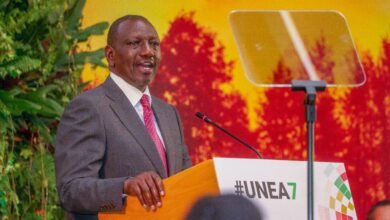
By Vincent Odhiambo | The economic shockwaves of the coronavirus pandemic are still being felt across the country, since the virus hit Kenyan shores on March 13 last year.
A survey done by Twaweza East Africa now indicates that more families have become vulnerable as six out of ten households in the country do not have enough food to last them more than a week, owing to increased joblessness and lack of income.
As a result, families have been forced to reduce their daily food consumption, with nine out of ten Kenyans expressing concern that they could be worse off if the spread of the virus is not contained.
“We find that the government has put a lot of resources in terms of promoting awareness and putting in place health facilities to help citizens who have not been able to cope up with the current situation unfortunately the data that we collected in December clearly indicates that citizens are not all that confident with the way the situation is being handled.” Said Dr. James Corra – Kenya country lead and senior data analyst, Twaweza East Africa
Despite the socio-economic hardships Kenyans are facing, half of them have faith in the government’s economic recovery strategy.
But others are questioning how the government is spending funds allocated towards tackling the pandemic and its effects.
“The findings indicate that 63% of the citizens are not happy at all with the way the funds were handled the findings clearly demonstrate that citizens are quite happy with the way the government has handled the coronavirus outbreak and we find that many citizens are in support of these measures because 53% are saying that the measures are sufficient.” Said Kwame Owino, Chief Executive, Institute of Economic Affairs.
With a majority of sectors like education, the informal sector, health, tourism and hospitality, public transport ranking among the sectors most affected by the pandemic, Kenyans want the government to intervene through the provision of grants and tax relief to businesses in order to address the economic impact of the pandemic.
“in my view in it will be possible to still see some residual effects and it is important that we still discuss that show that this was a crisis the responses that were made to ensure that those who fell through the gaps are still supported coz the function of this empirical evidence is to actually use it for action policy discourse but also to make sure the government makes policies that make a difference to people’s lives.” Added Owino.
According to the World Bank, however, Kenya’s economic growth outlook remains highly uncertain, as the covid-19 pandemic continues to spread in the country and globally.
However, the multilateral lender also projects that Kenya’s economy could rebound quickly in 2021, lifting real Gross Domestic Product (GDP) by 6.9 percent.





